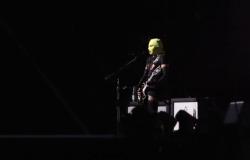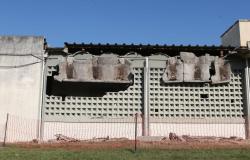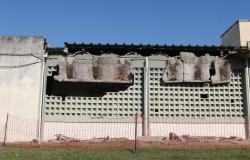The decisions of the Superior Electoral Court (TSE) to take down profiles, accounts and publications on social networks aimed to prevent waves of criticism against the electoral system and control political sentiments after the 2022 elections, according to political scientists interviewed by People’s Gazette. All TSE decisions, which appear in the report released by the United States Chamber, were taken as of October 31, 2022, the date after the second round of elections that elected President Luiz Inácio Lula da Silva (PT).
Of the 35 TSE decisions that were announced by North American parliamentarians, 30 were made from October 31, 2022 to January 2023. The period was marked by intense movement on social media, especially among representatives of the right, who raised several questions on the functioning of the electoral system. The remaining five orders were taken between February and November 2023.
“I strongly suspect that the objective of ‘juristocracy’ was this: to prevent a wave of protests not only against the result of the election, but, above all, against the lack of transparency in the vote counting process, silencing the most eloquent influencers and, therefore, ‘more dangerous’”, assesses Paulo Kramer, doctor in Political Science.
Federal deputies Carla Zambelli (PL-SP), Marcel Van Hattem (Novo-RS), Gustavo Gayer (PL-GO) – elected at the time, without a degree –, and former president Jair Bolsonaro (PL) himself were some of the direct targets of the organ. Profiles of ordinary citizens were also suspended for publishing messages that criticized the transparency of the ballot boxes, pointed out possible fraud in the electoral system or advocated military intervention. Some suspended publications had other approaches and offended the ministers of the Federal Supreme Court (STF) or propagated false news such as that an American TV had announced that the President of the United States, Joe Biden, was involved in fraud in the Brazilian elections.
“The election extended until after the vote. Let’s remember that there was a period of great commotion among former president Bolsonaro’s voters who gathered in the barracks, with requests for intervention, for example. In fact, the electoral authority may have acted in an attempt to bring about a political decompression of this movement that was supported by part of Bolsonaro’s voters”, says Leonardo Barreto, PhD in Political Science from UnB.
Results of the TSE’s actions are clearer now, says political scientist
For Barreto, only now are the results of the TSE’s actions clearer. “I understand that even the political forces that at that time supported Alexandre Moraes’ actions are now withdrawing that support. Because they know that yesterday this framework served to limit one part of the political spectrum, but later on it can be used to limit another part”, he explains.
The scientist adds that press outlets have also changed their position in relation to the orders of the STF minister and TSE president, Alexandre de Moraes. A People’s Gazette recorded this movement when analyzing how the Newspaper It is The State of S. Paulo published more scathing editorials that condemned the attacks on freedom of expression promoted by Moraes.
“No democracy worthy of the name could ban or censor the debate on the electronic popular voting mechanism, especially because any and all public policies can only be improved thanks to the criticism they receive”, reiterated Kramer.
For him, it is “fundamental that the Electoral Court seeks to make the system more transparent and accessible to the understanding of all citizens, so as not to leave any doubt in the air about the fairness of the process”, even more so given the polarized political environment in which Brazil is today.
TSE relied on a resolution created by the body itself to limit freedom of expression
With 10 days to go until the second round of the 2022 elections, the TSE created a resolution that gave the body itself the police power to suspend profiles and content on social networks when considering that they cause “informational disorder”.
Through the resolution, the Court would not even need to be provoked by the Public Ministry or third parties to act to overturn accounts or publications. Most of the decisions contained in the United States Chamber report rely on articles from this resolution to justify the determination.
“From the point of view of freedoms and guarantees, the TSE began to define, through a resolution, people who could not speak further on that point. And it seems to me that it was with the aim of defending democracy that limits were created on freedom of expression for a portion of society”, concludes Barreto.
TSE decisions follow the same pattern: ANEED survey and justification based on checking websites
In general, TSE orders followed the same pattern. The TSE’s own Special Advisory Office for Combating Misinformation (ANEED) pointed out which publications should be removed and relied on pages of information checkers or news sites to justify the suspension of content.
One of the determinations took down content from 17 different profiles, including Canal Hipócritas, and followed exactly the standard. “This is a procedure initiated based on information forwarded by the Special Advisory for Combating Misinformation, which detected, on this date, the replication of videos from a sensationalist live broadcast, held on November 4th on the Twitch and YouTube platforms, with the presentation of vague and unproven accusations, which affect the integrity and normality of the electoral process, encouraging, based on false claims of fraud, the refusal of the results and, eventually, an institutional rupture”, states the document. They then point out that the data was distorted. “According to an article published by the newspaper The state of Sao Paulois based on an ‘apocryphal dossier […] full of false information’”.
The order that took down a video by deputy Marcel Van Hattem does not even mention what, in fact, was said by the parliamentarian that would justify the removal of the content. In the published acts, there are only screenshots of the video and the links that no longer work. Also with the opinion of ANEED, it was only reported that the parliamentarian’s public demonstrations “affect the integrity and normality of the electoral process, encouraging the illegal holding and capture of votes through coercion and the crime of electoral coercion”.
“Without transparency in elections, we run the risk of making the country go back almost a century, remembering that one of the main causes of the 1930 Revolution was the growing discontent of public opinion with the lack of transparency, the root of all the fraud committed by the owners of the power of the so-called ‘Old Republic'”, reiterates Kramer.
Tags: TSE decisions censorship report elections
--





